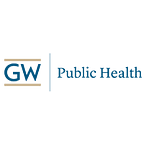COVID-19, Obesity and Social Isolation: A risky intervention?
By Todd Miller
I like candy. In particular, I’m a huge fan of Skittles and generally eat a handful every day. However, since being confined to my house for the past 8+ weeks, I find myself “tasting the rainbow” a lot more frequently. I’m also noticing that many of the healthy dietary practices that I’m normally pretty good at maintaining are starting to slip. My exercise habits are also suffering badly, as I currently have no access to the gym, and replacing weight training with cardio — well, that just isn’t going to happen, as I’m not sure which sounds more appealing: going for a 20-minute run or watching a roasting chicken.
Normally I would dismiss these temporary physical activity and dietary deviations, secure in the knowledge that things will soon return to normal. In the age of COVID-19 however, that kind of thinking could have grave consequences. Indeed, anecdotal reports from hospital workers indicate that COVID-19 seems to be disproportionately affecting obese people. For example, in a recent report from the Intensive Care National Audit & Research Centre in the United Kingdom, 72.1 percent of patients with confirmed COVID-19 were overweight or obese, and 60.9 percent of patients with a BMI>30 who had undergone intensive care had died. Furthermore, the CDC has classified severe obesity per se as a significant risk factor for COVID-19.
When we consider that fat gain is a function of energy imbalance, with more calories being eaten than burned, it becomes easy to see how social isolation protocols that include stay-at-home orders can lead to unwanted fat gain. Decreases in physical activity that are almost certain to occur with a stay-at-home order will lead to fewer calories being burned per day on average. Furthermore, profound changes in one’s food environment have the potential to lead to excessive eating, further contributing to fat gain.
A host of other factors may manifest themselves during an infectious disease outbreak that could contribute to the deterioration of healthy eating and activity habits. According to the CDC, stressors during an outbreak of an infectious disease may include: (a) fear and worry about your own health and the health of your loved ones; (b) changes in sleep or eating patterns; © difficulty sleeping or concentrating; (d) worsening of chronic health problems; (e) worsening of mental health conditions; and (f) Increased use of alcohol, tobacco, or other drugs.
While this list illustrates what one might experience during an infectious disease outbreak, it DOES NOT specifically address what one might experience during extended periods of social isolation. It is reasonable to expect that for many people, being forced to stay in social isolation can potentially exacerbate the aforementioned problems, causing increases in fat gain that can increase the risk of major complications should one contract COVID-19. This creates a conundrum in that the social isolation protocols put in place in order to prevent the spread of COVID-19, may lead to increases in body fat that increase both the severity of symptoms, and the risk of mortality should one actually contract COVID-19.
The enormity of this problem begins to crystallize when we consider that current obesity rates in the United States today are around 42 percent, with little reason to believe that rate won’t continue to increase. This predisposes an enormous segment of the population to increased severity of symptoms and mortality risk should they contract COVID-19.
To address this issue, researchers from the Department of Exercise & Nutrition Sciences have submitted a proposal to study changes in physical activity and eating behaviors during social isolation, to see whether these changes lead to increased body fatness. Levels of anxiety and depression will also be assessed, as these emotional components could heavily influence diet and exercise behaviors. This work is being done as a starting point for the development of diet and exercise interventions that can be delivered online during periods of extended social isolation. While this research will take months to complete, it’s probably safe to say that paying special attention to your diet and exercise program while in social isolation is a pretty good idea. For me, that means reluctantly relinquishing my Skittles — for now.
Todd Miller, PhD, is Director of the Weight Management and Human Performance lab at GW’s Virginia Science and Technology Campus and is an Associate Professor in the Department of Exercise and Nutrition Sciences at the GW Milken Institute School of Public Health.
